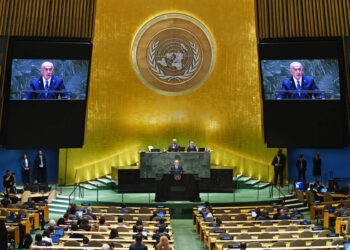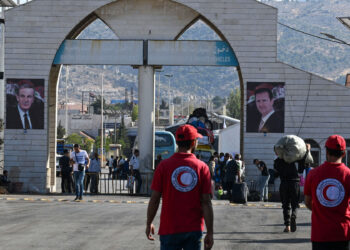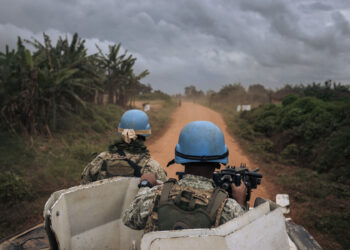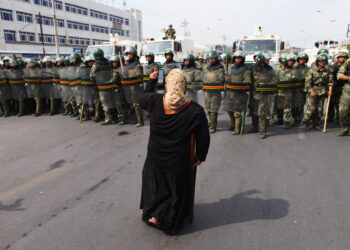Amr Darrag is a former Egyptian Minister of Planning and International Cooperation
Amr Darrag is a former Egyptian Minister of Planning and International Cooperation
History shows that when people live under dictatorial regimes, there often comes a time when their fear of the regime is secondary to their dissatisfaction with it. In a democratic regime, the people can express their dissatisfaction without fear. The same old practice of supporting autocratic regimes by the international community, following the theory that stability under a "strong man" is better than democracy for third-world countries, unfortunately still prevails. This practice usually leads to the opposite: instability.
The tactics used to keep people from rising up – intimidation, arrests and disappearances – and the tactics used to keep people oppressed – economic mismanagement, corruption and exploitation – are often indistinguishable. However, the consequences of the two differ. Whilst in the short term people may fear the regime, in the long term, if there are deep societal and economic issues caused by corruption and oppression by their leaders, the fear under which people have been living will slowly begin to dissipate, leading to visible protests and, possibly, instability.
In Egypt, this imbalance has been growing since the moment Abdel Fattah al-Sisi took power by force in a military coup in 2013. The discomfort which many foreign powers felt with Mohamed Morsi, a democratically elected president trying to follow an independent agenda, was never clearer than in their implicit support of the coup. Western powers were especially silent about such a clear rejection of the Egyptian peoples' will. In the seven years since, this belief that Sisi would be a bastion of stability and democracy for the North African and Middle Eastern region whom Western powers could rely on has proven time and again to have no substance. Indeed, the democratic hopes of the Egyptian people have been completely destroyed, destabilising the country even more than during the Mubarak era, which itself ended amid a popular uprising.
Egypt currently has about 60,000 political prisoners. It is involved in a war in Libya with no end in sight, supporting a rogue general with no real mandate. In Sinai, where the army have been fighting an insurgency for years, the reported casualty numbers far exceed the alleged number of insurgents. If the extraordinarily well-funded Egyptian army cannot win against a significantly less well-equipped insurgent group, it is clear that they are not fighting for victory. The volume of human rights abuses taking place on a daily basis in Egypt is staggering.
From an economic perspective, the Sisi regime has managed to convince foreign lenders such as the IMF to increase international loans and Foreign Direct Investment, giving the appearance of a stable and growing economy. The truth is that they have plunged the country further in to debt with little to no diversification of the economy, and, as has been pointed out by a recent report by the Arab Reform Initiative, an almost "militarization" of the economy. This bleak record doesn't even take account of the damage done by the coronavirus pandemic. According to the World Bank in 2018, more than 60 percent of Egyptians were either below or about to be under the poverty line.
To add to this already concerning picture, the Egyptian government has been forcefully evicting people from their homes and demolishing some of them. Although it is true that in some cases the houses from which people are being evicted were built illegally, many have been there for more than 40 years. To suddenly start evicting people and turning off their water and electricity during a global pandemic is a new level of cruelty even for Sisi. This may have been the spark which began to crumble the barrier of fear that was keeping people from protesting.
Although small at first, protests have been slowly and organically popping up throughout the country, not solely in the metropolitan centres where people have historically been more likely to express their anger. The protests have been largely unorganized, with no clear leadership. They have sprung up in villages where very poor people live. These actions started in August and continued to grow, coinciding with the call for renewed protests on September 20, the one-year anniversary of the wave of demonstrations. A democratic and stable government would allow for such protests to take place. Yet the Sisi regime has reverted to the only tactic it knows: disproportionate use of force against unarmed, largely peaceful ordinary citizens. The situation could potentially slip into chaos.
As the protests grow in number and size, it has become clear that the scales have tipped against the regime, and the peoples' fear of Sisi and his government is no longer enough for them to stay quiet. Although the number of protests is shrinking, due to extreme oppression, the potential of having further, larger waves is still there. In the absence of organized political leadership for the protests, as all political figures and organizations have been silenced, the potential of these random protests turning chaotic is quite significant.
There is nothing democratic or stable about the Sisi regime. The continued support he receives, especially from the European Union and the United States, is confounding, to say the least. These ripples of instability will have far-reaching effects, and once the scales tip further against Sisi, they will be very difficult to contain.







